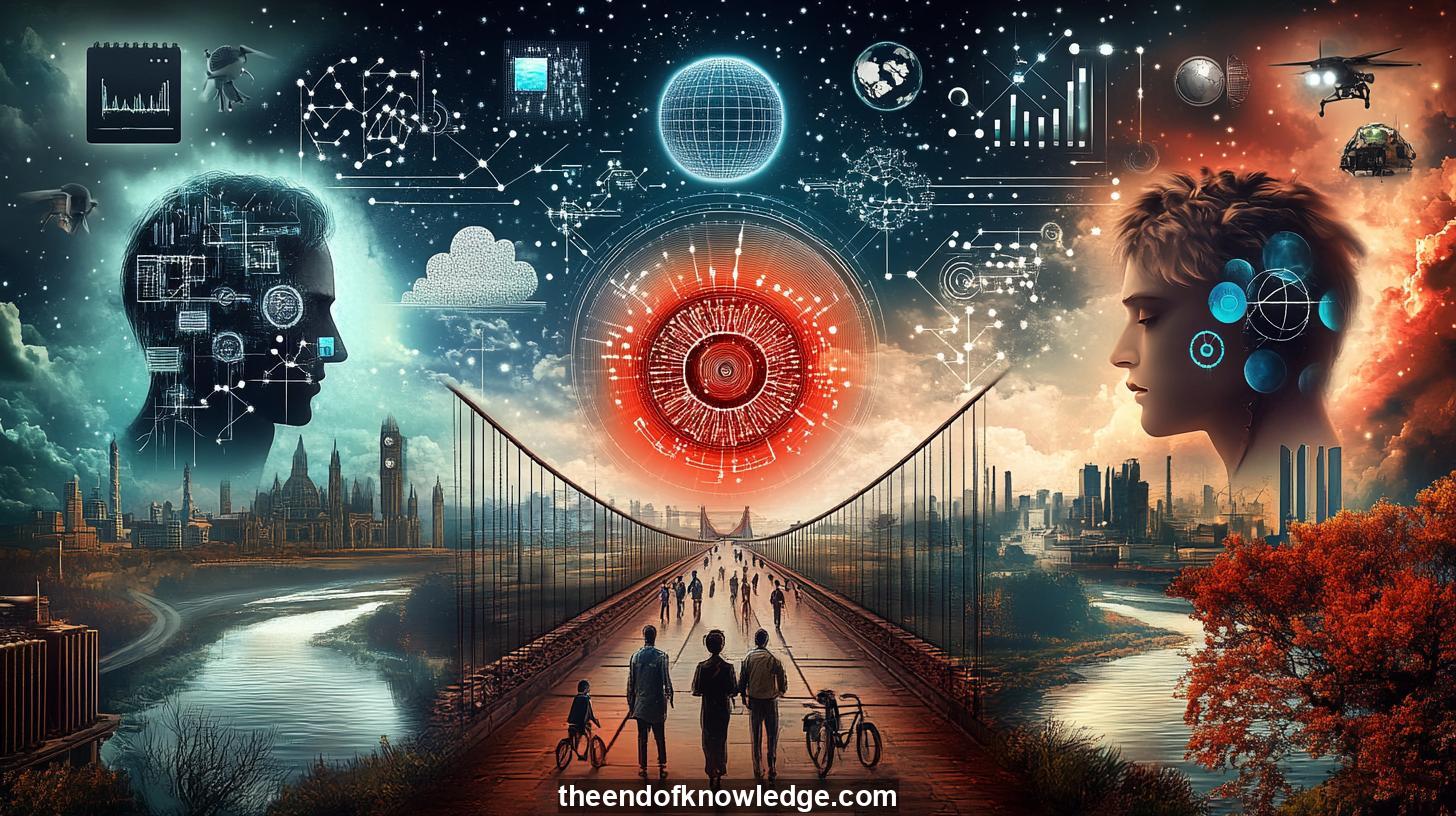 >
>
Concept Graph, Resume & KeyIdeas using DeepSeek R1 :
Resume:
The world is facing a complex and polarized era, deeply impacted by the rise of artificial intelligence (AI). This technology has sparked debates about its ethical implications, societal effects, and the need for regulation. AI's transversal impact touches on various aspects of life, including education, employment, and governance. The discussion highlights the importance of balancing technological progress with responsibility, emphasizing the need for ethical frameworks to guide AI development.30 Key Ideas:
1.- AI's impact is transversal, affecting education, employment, and governance, requiring ethical frameworks.
2.- Balancing technological progress with responsibility is crucial for AI's ethical development.
3.- AI could either usher in a utopia or dystopia, depending on how it is aligned with human values.
4.- Education must adapt to prepare societies for the challenges and opportunities AI presents.
5.- AI offers solutions to climate change and resource distribution but risks worsening inequalities.
6.- The future of work may be redefined by AI, necessitating new social safety measures like universal basic income.
7.- International collaboration and regulation are essential to address AI's ethical and governance challenges.
8.- Transparency and accountability in AI systems are vital, especially in high-risk applications.
9.- Cultural and societal narratives significantly influence AI's development and its global impact.
10.- AI has the potential to either unify or divide communities, depending on its governance.
11.- Ensuring AI serves humanity's best interests requires balancing innovation with equity and responsibility.
12.- AI must enhance human capabilities without undermining core values like freedom and creativity.
13.- Ethical AI development involves addressing issues like bias, privacy, and algorithmic fairness.
14.- The integration of AI into education can democratize access to learning opportunities.
15.- AI-driven solutions can help achieve sustainable development goals, such as clean energy and water management.
16.- The ethical use of AI in governance can strengthen institutions and public trust.
17.- AI raises concerns about job displacement and the need for workforce retraining programs.
18.- Universal basic income is proposed as a potential solution to AI-induced economic disruptions.
19.- AI's impact on mental health, such as isolation and dependency, must be carefully managed.
20.- The development of AI requires interdisciplinary collaboration across sectors and disciplines.
21.- AI can enhance mobility and transportation, transforming urban planning and infrastructure.
22.- Smart cities leveraging AI must address risks like cybersecurity threats and data privacy.
23.- AI has the potential to improve healthcare outcomes through personalized medicine and diagnostics.
24.- The ethical implications of AI in warfare and geopolitical strategies must be addressed.
25.- AI can facilitate global cooperation in addressing challenges like poverty and inequality.
26.- The regulation of AI must consider its dual-use potential in both beneficial and harmful applications.
27.- AI's role in education includes enabling remote learning and personalized educational experiences.
28.- The environmental impact of AI development, such as energy consumption, must be mitigated.
29.- AI can empower marginalized communities by providing access to resources and opportunities.
30.- The future of AI hinges on humanity's ability to align technological advancement with ethical principles.
Interviews by Plácido Doménech Espí & Guests - Knowledge Vault built byDavid Vivancos 2025